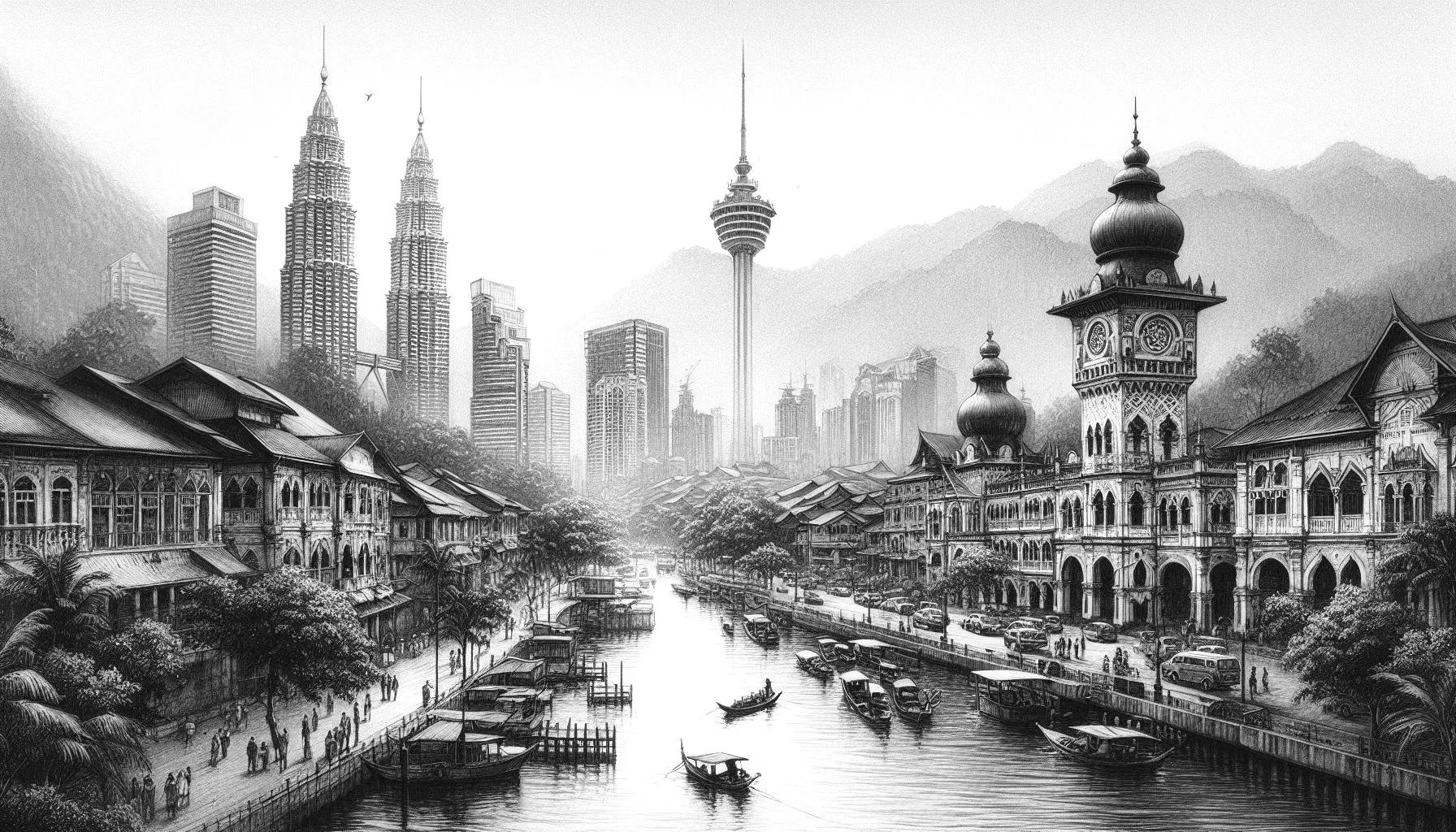Malaysia’s Journey: From Historical Roots to a Thriving Economic Powerhouse on the Global Stage
Malaysia is on the economic throes of growth, compliant with the new age of ASEAN expansion
Malaysia, located at the heart of Southeast Asia, is a country with a rich tapestry of history and culture, forged by its strategic geographic location and diverse population. From a colonial past to a modern, thriving nation, Malaysia has successfully carved a path to becoming a dynamic player on the regional and global stage. In recent years, despite challenges such as the COVID-19 pandemic, the country has demonstrated resilience and adaptability, positioning itself as an emerging economic powerhouse in the region.
A Brief History of Malaysia
Malaysia’s history is deeply intertwined with its role as a crossroads for trade and cultural exchange. The Malay Peninsula has been a crucial hub for traders from India, China, the Middle East, and beyond for centuries. This interaction between cultures laid the foundation for Malaysia’s multicultural society today.
In the 16th century, European colonial powers, including the Portuguese, Dutch, and eventually the British, sought control over Malacca and other key port cities in the region due to their strategic importance in the spice trade. British rule over Malaya, and later the formation of the Federation of Malaya in 1957, set the stage for Malaysia’s independence. The country officially became Malaysia in 1963 with the inclusion of Sabah and Sarawak, alongside Peninsular Malaya, and briefly Singapore.
Since gaining independence, Malaysia has undergone rapid industrialization and economic growth, particularly from the 1980s onwards, driven by sectors such as electronics, manufacturing, and oil and gas. This economic transformation, combined with strategic geopolitical positioning, has set Malaysia on a path of development and growth, enhancing its role in regional and global affairs.
The Current Government and Policies
Today, Malaysia is a constitutional monarchy with a parliamentary system. The current government, led by Prime Minister Anwar Ibrahim as of 2023, focuses on economic recovery, social equity, and good governance. The government has been proactive in addressing the challenges posed by the COVID-19 pandemic, implementing recovery plans to boost economic growth and enhance social welfare.
The Twelfth Malaysia Plan (2021-2025) is a key policy document that outlines Malaysia’s strategy for sustainable growth and post-pandemic recovery. It focuses on three core themes: resetting the economy, strengthening security and social inclusivity, and advancing sustainability. The plan aims to push Malaysia towards achieving high-income nation status by focusing on productivity, technology adoption, and upskilling the workforce. Additionally, emphasis is placed on sustainable development, addressing income inequality, and improving healthcare and education systems.
Malaysia's government is also keen to foster regional cooperation through platforms such as ASEAN (Association of Southeast Asian Nations) and is actively involved in international trade agreements, including the Regional Comprehensive Economic Partnership (RCEP). These initiatives are designed to open new economic opportunities, reduce trade barriers, and position Malaysia as a key player in global trade networks.
Malaysia's Thriving Economy in the Post-COVID Era
Despite the global economic slowdown caused by the COVID-19 pandemic, Malaysia has demonstrated resilience and adaptability. The government’s swift and decisive fiscal stimulus measures helped to cushion the blow of the pandemic on the economy, including cash transfers, wage subsidies, and tax relief for individuals and businesses. The implementation of the Economic Recovery Plan (PENJANA) in 2020 provided crucial support to small and medium enterprises (SMEs) and targeted industries that were severely impacted by the pandemic.
As Malaysia emerges from the pandemic, it is thriving due to several key factors. The country's strategic location, well-established infrastructure, and highly skilled workforce make it an attractive destination for foreign direct investment (FDI). Additionally, Malaysia has strengthened its digital economy, with sectors like e-commerce, fintech, and digital services experiencing rapid growth as businesses and consumers shifted to digital platforms during the pandemic.
Malaysia’s manufacturing sector, particularly in electronics and semiconductors, continues to be a significant driver of economic growth, contributing to the country’s export market. Malaysia is one of the largest exporters of electronics globally, benefiting from global supply chains that rely heavily on Southeast Asia. Furthermore, the palm oil industry, along with oil and gas, remains a cornerstone of Malaysia’s economy, contributing significantly to its GDP.
The government’s commitment to green energy and sustainability also opens new growth avenues. Malaysia has set ambitious goals in reducing carbon emissions and developing renewable energy sources, including solar and hydropower. This positions the country well as global investors increasingly prioritize environmental, social, and governance (ESG) standards in their investment decisions.
Malaysia's Role on the Regional and Global Stage
Malaysia is leveraging its economic success to strengthen its role on the regional and global stage. The country’s proactive engagement in ASEAN has made it a key voice in discussions on regional security, trade, and cooperation. Furthermore, Malaysia’s participation in major global trade agreements, such as the RCEP and the Comprehensive and Progressive Agreement for Trans-Pacific Partnership (CPTPP), further integrates the country into the global economy, enhancing trade flows and investment.
Malaysia’s strategic focus on becoming a hub for Islamic finance has also gained international recognition. With a well-developed Islamic banking system, Malaysia is seen as a global leader in the Islamic finance sector, attracting investors from around the world. This, combined with its established position in the halal industry, is propelling Malaysia as a key player in both the regional and global economy.
In the post-COVID era, Malaysia’s growing digital economy, robust manufacturing sector, and forward-thinking government policies make it a thriving economic powerhouse. As the country continues to build its global presence, Malaysia is well-positioned to navigate future challenges and capitalize on opportunities to sustain its growth and strengthen its position on the world stage.
Conclusion
Malaysia’s evolution from a historical trade hub to a thriving modern economy is a testament to the country's resilience, adaptability, and strategic foresight. With strong government policies focusing on economic recovery, sustainability, and regional cooperation, Malaysia is well-prepared to take on the challenges of the future. As it continues to thrive in the post-pandemic world, Malaysia’s ambition to strengthen its position as a regional and global powerhouse is not only achievable but increasingly within reach.

